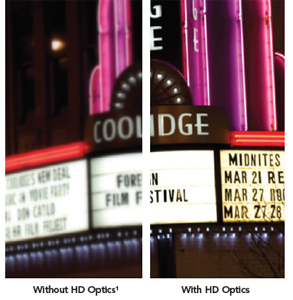Do you want a few at-home eye exercises that may just reduce your eye strain and fatigue?
Many people suffer from vision problems that cause debilitating symptoms, such as dizziness, headaches, eye strain and double vision.
These visual symptoms can affect your performance of daily activities and impact your work and school performance.
Sometimes, these symptoms can also cause anxiety— especially when the underlying cause is an undetected vision problem.
Vision therapy is often the answer many people have been searching for.
What is vision therapy?
Vision therapy is an effective treatment program used for vision problems that affect visual functioning, namely eye coordination, eye tracking, depth perception, focusing, and more.
There are 17 key visual skills that enable you to see both clearly and comfortably. A problem with any of the skills can lead to…well…significant problems that affect your quality of life.
A visual dysfunction is often the underlying cause of constant, unexplained dizziness, headaches, eye strain and double vision.
Vision therapy involves eye exercises along with the use of specialized lenses, prisms and other therapeutic tools to strengthen the visual system in order to help you feel better!
Vision therapy is effective for both children and adults, and is commonly prescribed for the following conditions:
- Convergence insufficiency (CI)
- Lazy eye
- Strabismus
- Dyslexia
- Nystagmus
- Visual field defects
- Motion sickness
- Dizziness
- Digital eye strain
While this article focuses on some eye exercises you can do in the comfort of your own home, they are not a substitute for professional eye care from an experienced eye doctor or vision therapist.
Contact an eye doctor near you for an eye exam and to determine which eye exercises are most appropriate for your individual needs.
SEE RELATED: What Is Vision Therapy?
Eye exercises to practice at home
These exercises are easy enough to practice from the comfort of your own home, but if you run into any difficulties, be sure to contact your eye doctor for advice.
Each set of exercises focuses on strengthening a different visual skill:
1. Improve focusing
Changing focus
The following two exercises will help you to maintain clarity of vision while switching between near and distant objects.
- Sit in a comfortable chair with your feet flat on the floor.
- Hold your index finger a few inches from your eye.
- Stare at your finger.
- Slowly begin to move your finger away from your face, while maintaining your focus.
- Break your focus and look into the distance for a few seconds.
- Bring your focus back to your finger while you slowly move it back toward your eye.
- Break your focus again and stare at a distant object.
- Repeat this exercise 3 times.
Near and far focus
- Sit in a comfortable chair with your feet flat on the floor.
- Position your thumb around 10 inches away from your face.
- Stare at your thumb for 15 seconds.
- Break your focus and look at something around 10 to 20 feet away for 15 seconds.
- Bring your focus back to your thumb.
- Repeat this exercise 5 times.
2. Reduce eye strain
Figure eight
- Sit in a comfortable chair with your feet flat on the floor.
- Focus on a spot on the floor around 10 feet in front of you.
- Draw a figure eight with your eyes around this spot.
- Continue tracing the figure eight for 30 seconds, then switch directions.
The rule of 20-20-20
- Every 20 minutes, look at an object that’s 20 feet away for 20 seconds.
Eye movements
- Close your eyes.
- With gradual movements, raise your eyes upward and then lower them downward.
- Repeat this 3 times.
- Then, gradually move the eyes to the left and then to the right.
- Repeat 3 times.
3. Improve eye coordination
Brock string
- Secure the end of a long string to a door knob or another stationary object.
- Hold the other end of the string underneath your nose.
- Place a small bead on the string.
- While keeping both eyes open, focus on the bead.
- You should see 2 strings in the shape of an X with the bead in the middle.
If you see 2 beads and 2 strings, your eyes are not converging at the bead. If you see only one string, make sure both eyes are open.
4. Enhance convergence
Pencil pushups
- Hold a pencil at arm’s length, in between the eyes.
- Slowly move it toward your nose, while trying to maintain a single image of it.
- Continue to bring the pencil toward the nose until the pencil is no longer a single image.
- Move the pencil back to the point where it appeared as a single image.
- Repeat 20 times.
5. For eye turns (strabismus)
Barrel cards
- Using a red marker, draw 3 barrels (small, medium and large) on one side of an index card.
- On the other side of the card, draw the same barrels in green.
- Hold the card against your nose, with the largest barrel farthest away from your face.
- Focus on the largest barrel until it appears as a single image with both colors, and the other 2 barrels have doubled.
- Maintain your focus for around 5 seconds.
- Repeat this exercise with the other 2 images.
LEARN MORE: Guide to Vision Therapy
If you are suffering from constant eye strain, headaches or dizziness or your vision just doesn’t feel right, schedule an appointment with an eye doctor near you.
Clear and comfortable vision is essential for achieving success in the classroom, sports field and the office. These at-home eye exercises could offer some relief in the short term.
However, if your symptoms remain, vision therapy might be the solution for treating the underlying cause.










